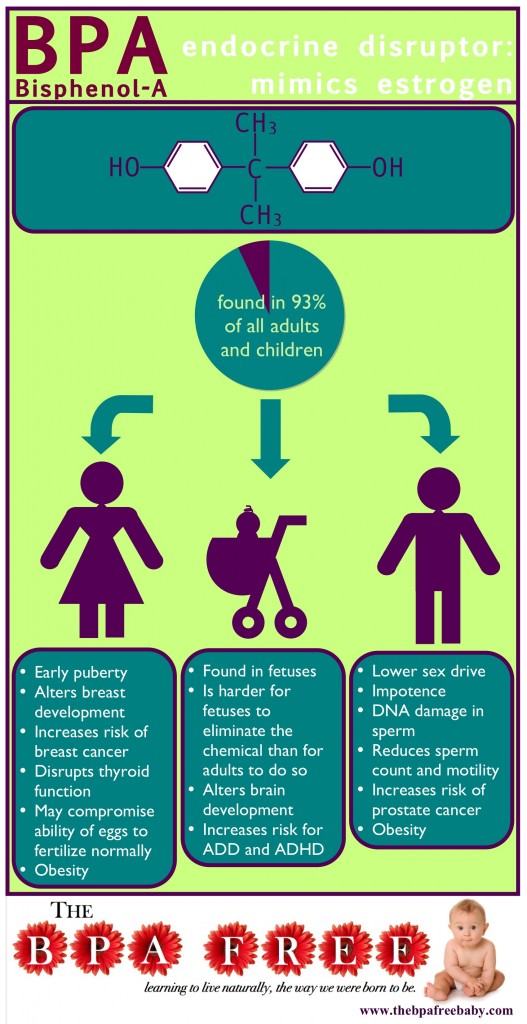If you're using plastic, you're likely above acceptable health safety levels.
Douglas Fischer, Environmental Health News
 Our exposure to a common plastic additive
linked to breast cancer and obesity likely exceeds health thresholds set by
governments worldwide.
Our exposure to a common plastic additive
linked to breast cancer and obesity likely exceeds health thresholds set by
governments worldwide.
The European Environment Agency, citing updated research data,
said the new findings raise "significant health concerns" for the
entire European population – and, by extension, anyone who comes into frequent
contact with plastic.
The agency cited a study that found every
single participant of a biomonitoring study was likely exposed to the chemical
above safe health thresholds. The participants came from 11 European countries.
The chemical, bisphenol-a, or "BPA," makes plastics hard and is found in a variety of products, from reusable water bottles and plastic food containers to sports equipment.
It is also a key
ingredient in epoxies and resins, including canned food liners. And that
grittiness you feel when you rub a thermal paper sales receipt between your
fingers? That's BPA.
"Bisphenol A poses a much more widespread risk to our health than previously thought," Leena Ylä-Mononen, the European Environmental Agency's Executive Director, said in a statement.
"We must take the results of this research seriously and take more action
at EU level to limit the exposure to chemicals that pose a risk to the health
of Europeans."
EU regulators are taking several steps to
reduce BPA exposure. One proposal would slash the accepted
exposure level of BPA in food contact materials nearly 20,000-fold, all but
banning the product.
The United States takes a starkly different
approach: The U.S. safe daily exposure level for BPA, set in 1988, is 250,000
times higher than the proposed European recommendation.
More troubling: Researchers suspect efforts
to measure BPA in our blood and bodies "dramatically
underestimate" the amount – a finding with profound public
health impacts, given that the Food and Drug Administration maintains BPA is
safe in part because the agency asserts human exposure is
"negligible."
Douglas Fischer is the
executive director of Environmental Health Sciences, which publishes EHN.org.